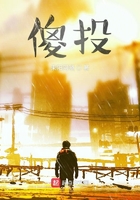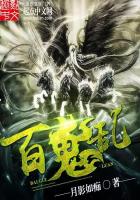A year passed. It was the same place; the old familiar outlines of home and garden and landscape. But seen now, in the choking breathlessness of haste, in the fitful changing flashes of life and motion around it, in intervals of sharp suspense or dazed bewilderment, it seemed to be recognized no longer. Men who had known it all their lives, hurrying to the front in compact masses, scurrying to the rear in straggling line, or opening their ranks to let artillery gallop by, stared at it vaguely, and clattered or scrambled on again. The smoke of a masked battery in the woods struggled and writhed to free itself from the clinging treetops behind it, and sank back into a gray encompassing cloud. The dust thrown up by a column of passing horse poured over the wall in one long wave, and whitened the garden with its ashes. Throughout the dim empty house one no longer heard the sound of cannon, only a dull intermittent concussion was felt, silently bringing flakes of plaster from the walls, or sliding fragments of glass from the shattered windows. A shell, lifted from the ominous distance, hung uncertain in the air and then descended swiftly through the roof; the whole house dilated with flame for an instant, smoke rolled slowly from the windows, and even the desolate chimneys started into a hideous mockery of life, and then all was still again. At such awful intervals the sun shone out brightly, touched the green of the still sleeping woods and the red and white of a flower in the garden, and something in a gray uniform writhed out of the dust of the road, staggered to the wall, and died.
A mile down this road, growing more and more obscure with those rising and falling apparitions or the shapeless and rugged heaps terrible in their helpless inertia by hedge and fence, arose the cemetery hill. Taken and retaken thrice that afternoon, the dead above it far outnumbered the dead below; and when at last the tide of battle swept around its base into the dull, reverberating woods, and it emerged from the smoke, silenced and abandoned, only a few stragglers remained. One of them, leaning on his musket, was still gloomily facing the woods.
"Joseph Corbin," said a low, hurried voice.
He started and glanced quickly at the tombs around him. Perhaps it was because he had been thinking of the dead,--but the voice sounded like HIS. Yet it was only the SISTER, who had glided, pale and haggard, from the thicket.
"They are coming through the woods," she said quickly. "Run, or you'll be taken. Why do you linger?"
"You know why," he said gloomily.
"Yes, but you have done yo' duty. You have done his work. The task is finished now, and yo' free."
He did not reply, but remained gazing at the woods.
"Joseph," she said more gently, laying her trembling hand on his arm, "Joseph, fly--and--take me with you. For I was wrong, and I want you to forgive me. I knew your heart was not in this, and I ought not to have asked you. Joseph--listen! I never wanted to avenge myself nor HIM when I spat on your face. I wanted to avenge myself on HER. I hated her, because I thought she wanted to work upon you and use you for herself."
"Your mother," he said, looking at her.
"No," she said, with widely opened eyes, "you know who I mean--Miss Sally."
He looked at her wonderingly for a moment, but quickly bent his head again in the direction of the road. "They are coming," he said, starting. "YOU must go. This is no place for you. Stop! it's too late; you cannot go now until they have passed. Come here--crouch down here--over this grave--so."
He almost forced her--kneeling down--upon the mound below the level of the shrubs, and then ran quickly himself a few paces lower down the hill to a more exposed position. She understood it. He wished to attract attention to himself. He was successful--a few hurried shots followed from the road, but struck above him.
He clambered back quickly to where she was still crouching.
"They were the vedettes," he said, "but they have fallen back on the main skirmish line and will be here in force in a moment. Go--while you can." She had not moved. He tried to raise her--her hat fell off---he saw blood oozing from where the vedette's bullet that had missed him had pierced her brain.
And yet he saw in that pale dead face only the other face which he remembered now had been turned like this towards his own. It was very strange. And this was the end, and this was his expiation!
He raised his own face humbly, blindly, despairingly to the inscrutable sky; it looked back upon him from above as coldly as the dead face had from below.
Yet out of this he struck a faint idea that he voiced aloud in nearly the same words which he had used to Colonel Starbottle only three years ago. "It was with his own pistol too," he said, and took up his musket.
He walked deliberately down the hill, occasionally trying the stock of his musket in the loose earth, and at last suddenly remained motionless, in the attitude of leaning over it. At the same moment there was a distant shout; two thin parallel streams of blue and steel came issuing through the woods like a river, appeared to join tumultuously in the open before the hill, and out of the tumult a mounted officer called upon him to surrender.
He did not reply.
"Come down from there, Johnny Reb, I want to speak to you," called a young corporal.
He did not move.
"It's time to go home, Johnny."
No response.
The officer, who had been holding down his men with an unsworded but masterful hand, raised it suddenly. A dozen shots followed.
The men leaped forward, and dashing Corbin contemptuously aside streamed up the hill past him.
But he had neither heard nor cared. For they found he had already deliberately transfixed himself through the heart on his own bayonet.















